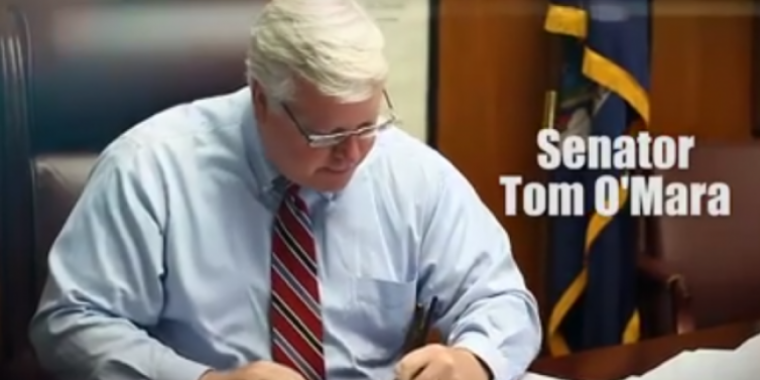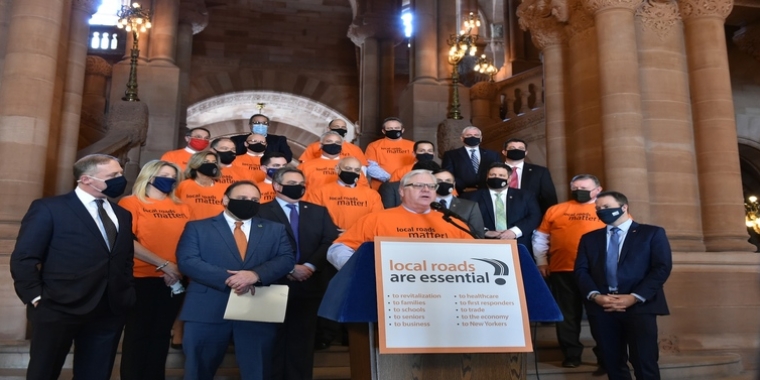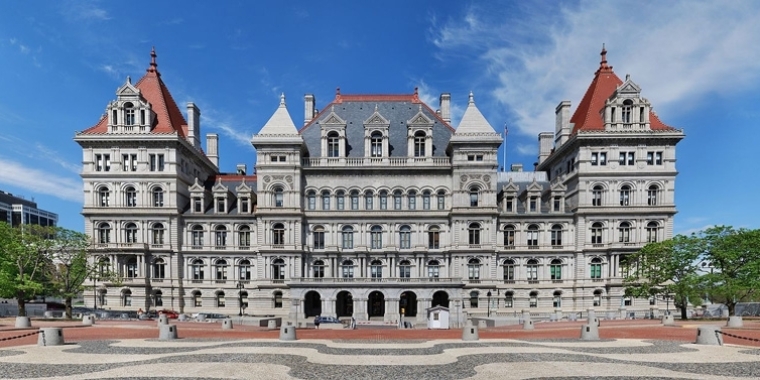
Senator O'Mara's weekly column ~ for the week of July 13, 2020 ~ 'No recess this summer for area school districts'
July 13, 2020

Senator O'Mara offers his weekly perspective on many of the key challenges and issues facing the Legislature, as well as on legislative actions, local initiatives, state programs and policies, and more. Stop back every Monday for Senator O'Mara's latest column...
This week, "No recess this summer for area school districts"
Traditionally, these months mark the summer recess for school districts across the region and around New York State.
Not this summer, when the COVID-19 pandemic continues to upend so much of what we have always considered traditional in our lives, including education.
Over the past several weeks, while the Southern Tier and Finger Lakes regions have moved through the four phases of reopening, the focus has steadily shifted to schools and the question of whether students will return to classrooms in September?
Last week, regional government and education officials gathered at the Greater Southern Tier BOCES Bush Campus in Horseheads. District Superintendent Jim Frame noted that the GST BOCES encompasses 21 school districts covering 2,000 square miles and he highlighted the fact that “one strength that we really enjoy in our area is the great partnership we have with our local legislators.”
Keeping this ongoing partnership united and strong, I might add, will be critically important throughout the foreseeable future – maybe more important than ever before.
Together with these regional leaders in education, I joined Congressman Tom Reed and Assembly representatives Phil Palmesano, Chris Friend, Marjorie Byrnes and Joe Giglio to urge New York State to set the guidelines and allow individual school districts to begin in earnest the enormous job of preparing facilities, staffs and entire school communities, especially parents and students, for a return to school in September. [Watch a replay of our July 8 press conference HERE.]
Like so many coronavirus challenges, this one is complex, far-reaching and sparks strong reactions. However, there appears to be common ground on two fundamental fronts. One is the widespread recognition that preserving schools as we have known them -- with teachers in front of a classroom of students on a daily basis – is the primary goal.
National experts like Dr. Anthony Fauci, Director of the National Institute of Allergy and Infectious Diseases, and the American Academy of Pediatrics (AAP), have strongly emphasized the importance of returning to in-person school.
Dr. Fauci recently recently said, “I feel very strongly we need to do whatever we can to get the children back to school.”
A joint statement late last week from the AAP, American Federation of Teachers, National Education Association and the School Superintendents Association stressed their common ground: “Educators and pediatricians share the goal of children returning safely to school this fall. Our organizations are committed to doing everything we can so that all students have the opportunity to safely resume in-person learning.”
Furthermore, the statement read, “Local school leaders, public health experts, educators and parents must be at the center of decisions about how and when to reopen schools, taking into account the spread of COVID-19 in their communities and the capacities of school districts to adapt safety protocols to make in-person learning safe and feasible…A one-size-fits-all approach is not appropriate for return to school decisions.”
It’s important to stress the overriding priority of safety.
Our local county leaders, health professionals, educators, teachers and communities have demonstrated remarkable responsibility and discipline throughout the COVID-19 pandemic. They have shown they can be trusted with the task of reopening schools. No one cares more about the health and well-being of our students, families and school communities.
Hornell CSD Superintendent Jeremy Palotti said, “We have reached out to our school communities. Our teachers, our parents and most importantly, our kids, want to be back in school every day…Let local schools, with the guidance of their county health officials and school physicians, create plans to teach our students in person. They know our schools, they know our communities and they know what we are capable of accomplishing.”
Steuben County Manager Jack Wheeler added, “We believe it is critical that our county health departments be able to work with schools in our region to review plans and provide recommendations. No one knows the needs of our students better than school and local officials, and this collaboration will provide for the development of plans that comply with overarching state guidelines, while addressing the specific protective measures needed in our community.”
In short, local decision making is vital here. From our collective perspectives as regional government officials and educators, this aspect of the COVID-19 response is driven by one concern and one concern only: What’s best for our students?
Beginning this week, this challenge takes front and center stage. Less than an hour after our meeting at the GST BOCES last Wednesday, Governor Andrew Cuomo laid out a specific timeline. It calls for state guidance to be issued to school districts this Monday. Schools must submit individual plans for state review by July 31. Final reopening decisions will be made during the first week in August.
That’s an incredibly tight timeline. Nevertheless, that’s what we work toward now. It’s also what the Cuomo administration must honor. At other points in the reopening process, the administration has sometimes delayed actions at the last minute. That cannot be the case with schools.
Equally important, state decision-makers must take into account the individual circumstances and different needs of school districts on a regional basis. Southern Tier schools, for example, should not be considered in the same way as schools in New York City or other downstate areas where the coronavirus has been so much more widespread.
“We need flexibility,” I said last week. “One size doesn’t fit all. I think we need to plan now based on what the conditions are and adjust accordingly as conditions change.”
Stay tuned and I will look forward to keeping you updated.
###



